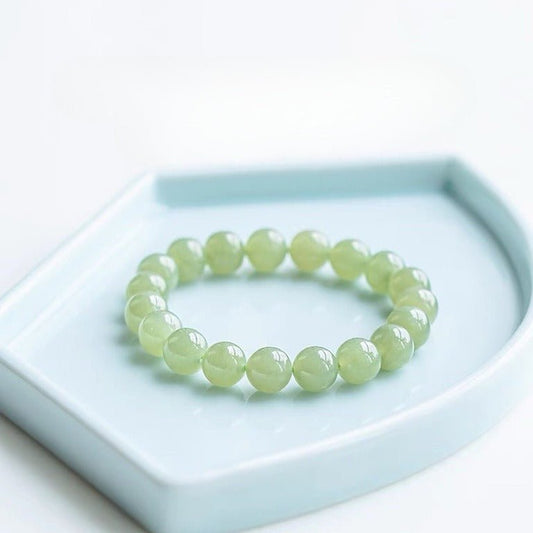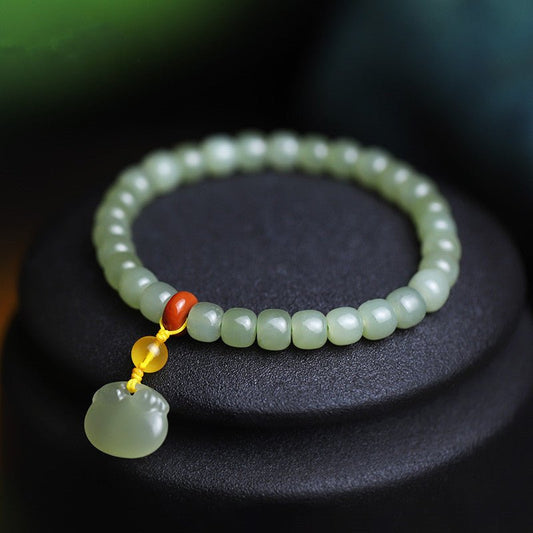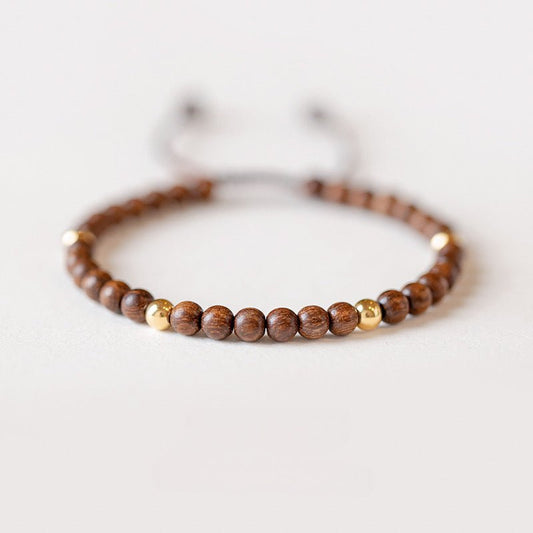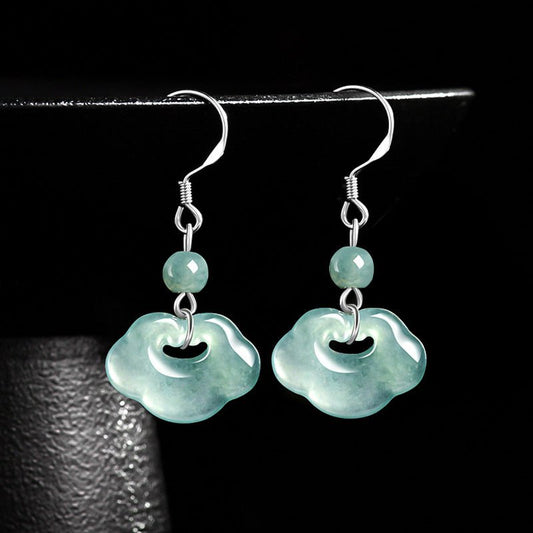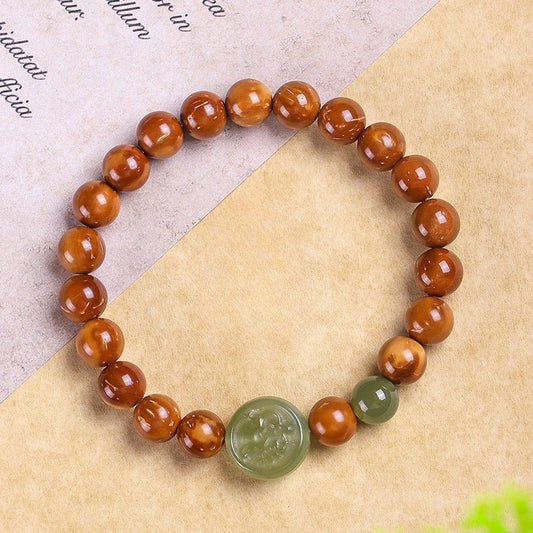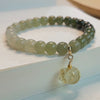The Benefits of Acupuncture: How This Ancient Practice Promotes Healing

Introduction to Acupuncture: A Holistic Approach to Healing 🌿💆♀️
Acupuncture, a key component of Traditional Chinese Medicine (TCM), has been practiced for thousands of years. Originating in ancient China, it focuses on balancing the body's energy, known as Qi (pronounced "chee"), and promoting self-healing. Through the careful insertion of fine needles at specific points on the body, acupuncture aims to restore the natural flow of energy, remove blockages, and enhance the body’s innate ability to heal.
In recent years, acupuncture has gained immense popularity around the world as a complementary treatment for a wide range of physical and emotional conditions. More people are turning to this ancient practice not only for pain relief but also for overall well-being, as it works holistically—addressing both the body and mind.
In this article, we will delve into the many benefits of acupuncture, explore how it works, and explain why this age-old practice continues to thrive in modern wellness routines. Whether you're looking to manage pain, reduce stress, or improve sleep, acupuncture has the potential to enhance your life in a natural and non-invasive way. 🌟

What Is Acupuncture? A Deep Dive into Its Ancient Roots 🐉🧘♂️
Acupuncture is a form of alternative medicine rooted in Traditional Chinese Medicine (TCM), an ancient healing system that dates back over 2,000 years. It involves the insertion of extremely thin needles into specific points on the body, called acupoints, which are located along meridians (energy pathways). This practice is based on the belief that the body’s energy, or Qi, flows through these meridians and must remain balanced for optimal health.
History of Acupuncture: A Tradition Passed Down Through Generations 📜
The history of acupuncture can be traced back to the Zhou Dynasty (1046–256 BC), and it has been an integral part of Chinese culture ever since. The earliest known references to acupuncture can be found in the Huangdi Neijing (The Yellow Emperor's Classic of Medicine), a foundational text in Chinese medicine, which laid the groundwork for understanding how acupuncture and other therapies could promote balance in the body.
Over the centuries, acupuncture evolved, with different schools of thought influencing its development. In the West, acupuncture began gaining recognition in the 1970s, when it was introduced as a viable treatment for various ailments. Today, acupuncture is widely practiced worldwide, especially in countries like the U.S., Canada, and Europe.

How Does Acupuncture Work? ⚙️🔬
According to TCM, acupuncture is based on the principle that good health depends on the smooth flow of Qi (energy) through the body. When Qi is blocked or imbalanced, it can lead to pain, illness, and other health problems. By inserting thin needles into strategic acupoints along the meridians, acupuncture is believed to stimulate the body’s energy flow, restore balance, and promote healing.
Although acupuncture is a practice deeply rooted in Eastern philosophy, many modern studies suggest that acupuncture may work through a combination of mechanisms. Some researchers believe that acupuncture stimulates the nervous system, prompting the release of endorphins (the body’s natural painkillers), improving blood circulation, and reducing inflammation. 🧠💉
The Healing Benefits of Acupuncture: From Pain Relief to Emotional Well-Being 🌸
Acupuncture has a wide range of potential benefits for physical, mental, and emotional health. Let’s dive deeper into how this ancient practice can promote healing in different aspects of life.

1. Pain Relief: A Natural Solution for Chronic Pain 🌱🩺
One of the most well-known benefits of acupuncture is its ability to alleviate pain. Whether you're dealing with chronic conditions like back pain, migraines, arthritis, or sports injuries, acupuncture offers a natural alternative to traditional pain management methods, such as medications or surgery.
Acupuncture works by stimulating the body's natural pain-relieving mechanisms. It is believed that acupuncture helps release endorphins and other neurotransmitters, which can reduce the sensation of pain and promote relaxation.
How Acupuncture Eases Chronic Pain:
-
Back Pain: Acupuncture has been shown to be effective in treating chronic lower back pain, a common issue that affects millions of people. Studies suggest that acupuncture helps improve blood flow to the affected area, reduce inflammation, and release muscle tension.
-
Migraines and Tension Headaches: Many people who suffer from migraines and tension headaches turn to acupuncture for relief. The treatment targets specific pressure points that help reduce the frequency and intensity of headaches.
-
Joint Pain and Arthritis: Acupuncture may reduce inflammation and increase the range of motion in affected joints, which is particularly helpful for individuals with arthritis or other joint-related issues. 🌿💪

Scientific Backing for Pain Relief:
Numerous studies have shown that acupuncture is effective in managing pain. For example, a study published in the Journal of Pain found that acupuncture was more effective than conventional treatments for chronic pain, including osteoarthritis and back pain. Other research published in the Archives of Internal Medicine confirmed that acupuncture can provide long-lasting pain relief.
2. Stress and Anxiety Reduction: Calm Your Mind 🌙🧘♀️
In today’s fast-paced world, many individuals struggle with stress, anxiety, and emotional strain. Acupuncture can help restore balance to your body’s nervous system, promoting relaxation and mental clarity. By targeting specific points on the body, acupuncture encourages the release of serotonin and other feel-good chemicals, which can reduce feelings of anxiety and stress.
How Acupuncture Helps Relieve Stress and Anxiety:
-
Regulating the Nervous System: Acupuncture stimulates the parasympathetic nervous system, which is responsible for the body’s “rest and digest” response. This helps lower heart rate, reduce blood pressure, and induce relaxation.
-
Balancing Emotions: According to TCM, emotional imbalance (such as excessive worry or fear) can lead to physical symptoms. Acupuncture helps restore emotional equilibrium by promoting the free flow of Qi.
-
Promoting Mental Clarity: Acupuncture helps clear mental fog, enhance focus, and bring a sense of calm to the mind. This can be particularly beneficial for individuals struggling with daily stress or work-related anxiety.
The Science Behind Acupuncture for Anxiety:
Research has shown that acupuncture can help reduce the symptoms of anxiety by activating the brain's calming response. A study published in Journal of Alternative and Complementary Medicine found that acupuncture significantly reduced anxiety levels in patients compared to a placebo.
3. Improved Sleep: Enhance Your Rest Naturally 🛏️🌙
Acupuncture is also widely recognized for its ability to promote better sleep. By restoring balance to the body’s energy flow and calming the nervous system, acupuncture can help you fall asleep faster, stay asleep longer, and wake up feeling more rested and rejuvenated.

How Acupuncture Helps with Sleep Disorders:
-
Regulating the Sleep-Wake Cycle: Acupuncture can regulate the production of melatonin, a hormone that controls sleep. By improving the quality of your sleep, acupuncture ensures that you enter the deeper stages of rest, which are essential for physical and mental recovery.
-
Relaxing the Mind: Stress and anxiety are major contributors to insomnia, and acupuncture addresses these root causes. By soothing the mind and promoting a sense of tranquility, acupuncture helps ease the mind into a peaceful sleep.
-
Supporting Hormonal Balance: Acupuncture may help rebalance hormones that influence sleep patterns, including cortisol (the stress hormone) and melatonin.
Scientific Evidence for Better Sleep:
Studies published in the Journal of Sleep Research and Sleep Medicine have shown that acupuncture can improve sleep quality and reduce insomnia. The treatment is especially beneficial for individuals whose sleep problems are rooted in stress or anxiety.
4. Digestive Health: Promote Gut Wellness 🌱💚
Acupuncture can also support digestive health by stimulating the body’s digestive system, improving nutrient absorption, and addressing conditions like Irritable Bowel Syndrome (IBS), bloating, and constipation. It works by improving the function of the digestive organs and restoring balance to the body’s energy.
How Acupuncture Supports Digestion:
-
Balancing Digestive Energy: According to TCM, digestive issues often arise from a deficiency or stagnation of energy in the digestive organs. Acupuncture can help restore proper energy flow to the stomach, liver, and intestines, leading to better digestion.
-
Reducing Inflammation: Acupuncture can help reduce inflammation in the digestive system, which can relieve symptoms of IBS, bloating, and indigestion.
-
Enhancing Nutrient Absorption: By improving blood circulation and digestive function, acupuncture helps the body absorb nutrients more effectively, contributing to overall health and vitality.
Studies on Acupuncture for Digestive Health:
Numerous studies have shown that acupuncture can be effective in treating digestive disorders. A review published in The American Journal of Gastroenterology found that acupuncture improved symptoms of IBS, including bloating and abdominal pain.
The Science Behind Acupuncture: Does It Really Work? 🧠🔬
While acupuncture has been practiced for thousands of years, many people still wonder: Does it really work? As the practice grows in popularity, there has been a rising interest in understanding how acupuncture works from a scientific perspective. Modern research is increasingly exploring the mechanisms that underlie acupuncture’s effects, and while many theories exist, one thing is clear—there is evidence to suggest acupuncture provides real benefits.
How Acupuncture Works: A Modern Understanding ⚙️🩺
In Western medicine, acupuncture is believed to work by stimulating the nervous system and triggering the body’s healing processes. When the acupuncture needles are inserted into specific acupoints, they are thought to activate nerves, muscles, and connective tissues. This stimulation is believed to enhance the body's natural healing abilities, improve blood circulation, and release endorphins, which can reduce pain and promote relaxation.
Endorphins and Neurotransmitters: The Body's Natural Painkillers
One of the key scientific explanations behind acupuncture’s effectiveness is its ability to release endorphins, the body’s natural pain-relieving chemicals. Acupuncture stimulates the release of these endorphins, leading to pain relief, a reduction in stress, and an overall feeling of well-being.
Additionally, acupuncture has been shown to influence neurotransmitters like serotonin and dopamine. These chemicals play a significant role in regulating mood and emotional health, which is why acupuncture is effective in treating not only physical ailments but also stress, anxiety, and depression.
Blood Flow and Circulation: The Body’s Healing Mechanism
Another scientific theory suggests that acupuncture improves blood circulation to the affected areas, enhancing the delivery of oxygen and nutrients while also facilitating the removal of waste products. This process helps to speed up healing and reduce inflammation. By promoting better blood flow, acupuncture can help relieve chronic conditions like arthritis, back pain, and muscle tension.
Scientific Studies Supporting Acupuncture:
Numerous studies support acupuncture’s effectiveness in treating various conditions. For example, a meta-analysis published in The Cochrane Database of Systematic Reviews concluded that acupuncture is an effective treatment for chronic pain, including lower back pain and osteoarthritis. Additionally, research published in The Journal of Alternative and Complementary Medicine suggests that acupuncture can have a positive effect on reducing anxiety and improving mental health.
While more research is still needed to fully understand how acupuncture works, it’s clear that the benefits are not just a result of the placebo effect. Acupuncture activates the body’s natural healing systems, providing real and measurable results. 🔬
What to Expect During an Acupuncture Session: A Step-by-Step Guide 🛋️💉
If you’re considering acupuncture for the first time, it’s normal to have questions about what to expect. Here’s a breakdown of a typical acupuncture session, from the initial consultation to the process of receiving acupuncture treatment.
1. Initial Consultation: Discussing Your Health Goals and Concerns 🗣️📋
During your first visit, the acupuncturist will begin with a detailed consultation to understand your health history, lifestyle, and specific concerns. They may ask questions about your medical history, stress levels, sleep patterns, and overall well-being to create a personalized treatment plan. The acupuncturist may also take your pulse, observe your tongue, and inquire about your body’s responses to various conditions. These methods are part of traditional diagnostic techniques used in TCM to assess your energy flow and identify imbalances.
2. Preparing for the Acupuncture Treatment 🧘♀️🌿
Once the consultation is complete, you’ll be asked to lie down on a comfortable treatment table. The acupuncturist will then begin selecting the appropriate acupuncture points based on your symptoms and overall health. Don’t worry—the needles used in acupuncture are incredibly thin, so most people experience little to no discomfort when they’re inserted.
3. Needle Insertion: What Does It Feel Like? 💉🤔
Acupuncture needles are typically much finer than needles used for injections or blood tests. In fact, they are often so thin that they are barely visible to the naked eye. When the acupuncturist inserts the needle, you may feel a slight pinch, tingling, or a sensation of heaviness or warmth at the insertion point. However, most people find the process painless, and any sensation typically subsides quickly.
The number of needles used varies depending on the condition being treated, but a typical session might involve anywhere from a few to a dozen or more needles. These needles are left in place for about 20 to 30 minutes, allowing time for the body to respond to the stimulation. 🌸
4. Relaxation Time: A Peaceful, Healing Experience 🌙💆♂️
While the needles are in place, you’ll be asked to relax and remain still. Many patients report feeling deeply relaxed during this time, with some even falling asleep. Acupuncture is known for its calming effects, and the quiet environment helps promote a sense of peace and well-being. It’s important to note that acupuncture treatments are generally very safe, and the needles are disposed of after each use to maintain hygiene.
5. Aftercare: Feeling Energized and Refreshed 🌿💧
After the needles are removed, you may feel a sense of calm or a boost of energy, depending on your treatment and the specific points targeted. You may also experience mild soreness or a sensation of warmth in the areas where the needles were placed, but these feelings usually dissipate within a few hours.
It’s advisable to drink plenty of water after your session to help flush out toxins and support the body’s healing process. Most people feel relaxed and rejuvenated after an acupuncture session, and some may notice improvements in their symptoms right away, while others may experience gradual progress over several sessions.

Acupuncture for Specific Health Conditions: Targeting Chronic Issues and Enhancing Wellness 🌱✨
Acupuncture is a versatile treatment that can help address a wide range of health concerns. Below, we’ll explore how acupuncture can be used to treat specific conditions, from chronic pain to emotional disorders and beyond.
1. Chronic Pain Relief: A Natural Alternative to Medication 💊❌
Acupuncture is widely recognized for its ability to manage chronic pain conditions, offering a natural alternative to pharmaceutical treatments. Whether you suffer from arthritis, lower back pain, fibromyalgia, or migraines, acupuncture may provide relief by stimulating the body’s natural pain-relieving mechanisms.
-
Back Pain: Acupuncture has been shown to reduce pain and improve mobility in people suffering from chronic back pain. By targeting specific acupoints along the spine and lower back, acupuncture promotes healing and decreases inflammation.
-
Migraine Relief: Acupuncture is often recommended for people who suffer from migraines or frequent tension headaches. It works by improving circulation, relaxing muscles, and balancing the nervous system, leading to fewer and less intense headaches.
-
Joint Pain and Arthritis: Acupuncture can help reduce joint pain caused by osteoarthritis or rheumatoid arthritis. It works by stimulating the release of natural painkillers and improving circulation, which helps reduce swelling and inflammation in the joints.
2. Fertility and Pregnancy Support 🌸🤰
Acupuncture is commonly used to support fertility and assist in conception. It can help regulate the menstrual cycle, improve blood flow to the reproductive organs, and balance hormone levels. For those undergoing IVF (In Vitro Fertilization), acupuncture has been shown to increase the success rates of the procedure by improving the body’s response to treatment.
Acupuncture can also be used during pregnancy to address discomforts such as nausea, morning sickness, fatigue, and even breech positioning. Many women turn to acupuncture for natural relief from pregnancy-related symptoms. 🌿
3. Respiratory Conditions: Breathing Easier with Acupuncture 🌬️🌿
Acupuncture is highly effective for treating respiratory conditions like asthma, allergies, and sinus problems. By targeting specific points, acupuncture helps to open the airways, reduce inflammation, and promote better lung function.
-
Asthma and Allergies: Acupuncture can help manage the symptoms of asthma and seasonal allergies by strengthening the immune system, regulating inflammation, and improving airflow.
-
Sinus Congestion: Acupuncture can reduce the pain and pressure caused by sinus infections and allergies, providing relief from congestion and promoting better drainage.
4. Skin Conditions: Clearer Skin with Acupuncture 🌸🌿
Acupuncture can also be beneficial for treating various skin conditions like acne, eczema, and rosacea. It works by improving circulation, balancing hormones, and reducing inflammation. By promoting healthy skin and enhancing the body’s detoxification processes, acupuncture can help achieve clearer, more radiant skin.
-
Acne and Skin Issues: Acupuncture helps reduce the underlying causes of acne, including hormone imbalances, stress, and inflammation. It also helps to regulate the body’s oil production and reduce redness and swelling associated with breakouts.
-
Eczema and Psoriasis: Acupuncture can alleviate itching and discomfort caused by eczema and psoriasis by reducing inflammation and promoting skin healing.
How to Find a Qualified Acupuncturist: Tips for Safe and Effective Treatment 🩺🔍
When considering acupuncture as a treatment option, finding a qualified and experienced practitioner is crucial for ensuring both safety and effectiveness. While acupuncture is generally safe when performed by a licensed professional, choosing the right acupuncturist can make a significant difference in the quality of your treatment.
Here are some important tips to help you find a skilled acupuncturist:
1. Look for Licensing and Credentials 🎓✅
In many countries, including the United States, Canada, and the UK, acupuncturists must be licensed and certified to practice. Look for an acupuncturist who holds a recognized certification from an accredited institution or governing body. For example, in the United States, acupuncturists are often certified by the National Certification Commission for Acupuncture and Oriental Medicine (NCCAOM), and in the UK, the British Acupuncture Council (BAcC) is a leading accrediting organization.
Make sure the acupuncturist’s credentials are clearly displayed and ask about their training and experience in the field. Well-trained professionals will be able to guide you through the process and address any concerns or questions you may have about the treatment.
2. Ask for Recommendations and Read Reviews 📝⭐
Word of mouth can be a valuable tool in finding a trusted acupuncturist. Ask friends, family members, or healthcare professionals for recommendations. Personal testimonials often provide valuable insights into a practitioner’s approach, bedside manner, and effectiveness.
Additionally, checking online reviews can give you an idea of other patients’ experiences. Websites such as Yelp, Google Reviews, or practitioner-specific platforms like ZocDoc can provide feedback from people who have already received treatment.
3. Consider Their Specialization and Experience 👩⚕️🧑⚕️
While many acupuncturists provide general treatments, some may specialize in specific conditions, such as pain management, fertility, or emotional health. If you’re seeking acupuncture for a specific issue, it’s a good idea to look for a practitioner with experience in treating that condition.
For example, if you are looking for acupuncture for chronic pain or migraines, finding an acupuncturist who has experience working with those issues can lead to more tailored, effective treatments. Don’t hesitate to ask potential practitioners about their experience with your particular concern.
4. Evaluate Communication and Comfort 🤝😊
During your first consultation, assess how comfortable you feel with the acupuncturist. They should be open to answering your questions, explaining the process, and making you feel at ease about the treatment. Clear communication is essential for building trust, and you should feel comfortable discussing your symptoms, goals, and any concerns you may have about acupuncture.
If you don’t feel at ease with the practitioner or feel that your concerns aren’t being adequately addressed, it may be worth considering another acupuncturist. Feeling comfortable and heard is key to a positive treatment experience.
5. Check for Cleanliness and Safety Standards 🧼💉
Acupuncture involves the use of needles, so it’s important to ensure that your practitioner follows proper hygiene and safety protocols. Make sure that the needles are single-use and disposed of after each session. The treatment environment should also be clean and well-maintained, with sanitary procedures in place to prevent any risk of infection or contamination.
6. Consider Location and Availability 📍📅
Finally, think about the location and availability of the acupuncturist. Since acupuncture often requires multiple sessions, it’s important to find a practitioner who is conveniently located and offers flexible appointment times. If the acupuncturist’s office is far away or has limited hours, it could become difficult to maintain consistency in your treatment.
Final Tips for Integrating Acupuncture Into Your Wellness Routine 🌱✨
Acupuncture is a powerful tool for healing, but like any therapy, it is most effective when integrated into a balanced lifestyle. Here are some final tips to ensure you get the most out of your acupuncture treatments:
1. Stay Consistent with Treatment 💪📅
For optimal results, consistency is key. While some people may experience immediate relief after one session, acupuncture often works best when performed over a series of treatments. It’s important to follow the treatment plan recommended by your acupuncturist. Most practitioners recommend a series of sessions, particularly for chronic issues, to ensure lasting improvements.
2. Take Care of Your Body Between Sessions 💧🥗
Incorporating acupuncture into your overall wellness routine can be highly effective when combined with healthy habits like proper nutrition, regular exercise, stress management, and good sleep. Here are some ways to support your acupuncture treatments:
-
Hydrate: Drink plenty of water after each session to help flush out toxins and support your body’s healing processes.
-
Eat a Balanced Diet: Nourish your body with nutrient-rich foods to support your immune system, energy levels, and overall health.
-
Rest and Relax: Acupuncture helps the body relax, but it’s also important to allow yourself time to rest and rejuvenate after each session. Practice mindfulness, meditation, or light exercise to maintain calmness and energy balance.
3. Listen to Your Body 🧘♂️🌟
Everyone responds to acupuncture differently. Some individuals feel immediate relief, while others may notice gradual improvements over time. Pay attention to how your body responds to each session and communicate openly with your acupuncturist about your experience. If you experience any discomfort or side effects, such as excessive soreness or dizziness, it’s important to let your practitioner know so they can adjust your treatment.
Conclusion: Embrace the Healing Power of Acupuncture 🌿💫
Acupuncture offers a holistic, natural, and effective approach to healing that addresses both the physical and emotional aspects of your well-being. Whether you’re seeking relief from chronic pain, stress, insomnia, or digestive issues, acupuncture provides a safe and proven alternative to conventional treatments.
By finding a qualified acupuncturist, staying consistent with your treatments, and supporting your healing journey with healthy habits, you can enjoy the many benefits this ancient practice has to offer. Acupuncture isn’t just about treating symptoms—it’s about restoring balance to your body, mind, and spirit, helping you achieve long-lasting wellness and vitality. 🌟
If you’ve been curious about acupuncture, now is the perfect time to explore its healing potential. Whether as a stand-alone treatment or as part of a larger wellness routine, acupuncture can be the key to unlocking your body’s innate ability to heal itself. Embrace the journey toward better health, and let acupuncture guide you along the way. 🌸💖



































